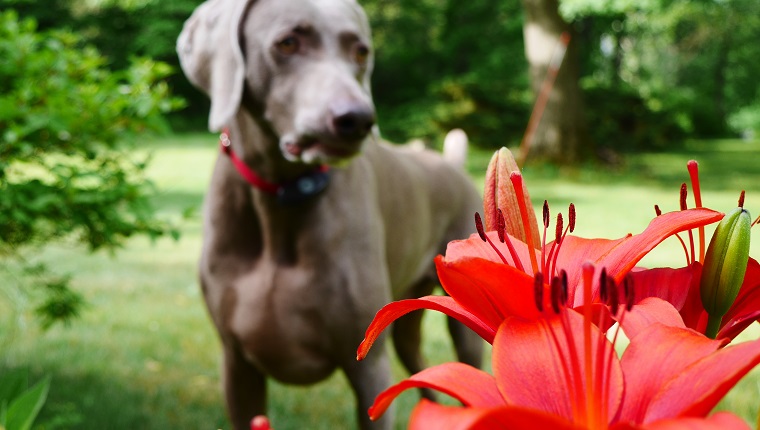Have you ever brought home a bunch of lilies and found yourself wondering whether they’re safe to keep on display around your dog? After all, lilies are well known to be highly toxic to cats, so are they also dangerous for your inquisitive dog?
The short answer is yes, most lilies are toxic to dogs if they are consumed. While some species of lilies aren’t technically poisonous to dogs, ingesting them will still more than likely bring on a bout of illness.
Additionally, in the specific case of Lily Of The Valley, the plant can prove to be fatal for dogs.
Here’s what you need to know about lilies and dogs.
What Type Of Lilies Are Toxic To Dogs?
While not all lilies are toxic to dogs, as a general rule, it’s best to avoid keeping these plants around your dog. This is because ingesting lilies of any type will usually bring on some form of sickness.
Some of the most popular types of lilies you should avoid letting your dog ingest include:
- Rain Lily
- Calla Lily
- Peace Lily
- Lily Of The Valley
The following lilies listed below are technically not toxic for dogs, but ingesting them will also most likely produce negative health effects:
- Tiger Lily
- Easter Lily
- Peruvian Lily
What Happens If A Dog Eats Lilies?

When a dog eats a lily, the plant usually has negative effects on the dog’s gastrointestinal system. Some of the most common symptoms of a dog eating lilies include:
- Diarrhea
- Drooling a lot
- Acting lethargic
- Loss of appetite
- Pawing at the mouth and face
- Vomiting
Generally, the effects of eating lilies will show up within two hours after a dog has ingested them.
What Should You Do If Your Dog Eats Lilies?
If you notice that your dog has eaten some lilies and you call your veterinarian straight away, they might suggest that you attempt to induce vomiting. Your vet can talk you through this process; although, if you are unsure about it, go and see your vet in person.
If you discover that your dog has eaten lilies more than a couple of hours ago and you notice symptoms, then you’ll need to go and see your vet.
Your vet will attempt to induce vomiting and might also use a substance called activated charcoal, which can help to get rid of any toxins in the body. In severe cases, dogs might also need intravenous fluid therapy to recover.
In all cases, your vet will likely order blood tests so that they can check the health of your dog’s organs.
In general, the best safeguard against your dog developing lily poisoning is to make sure that you keep your house a lily-free zone.
Has your dog ever eaten lilies? Do you keep lilies out of your home to keep your pets safe? Tell us all about it in the comments below!









